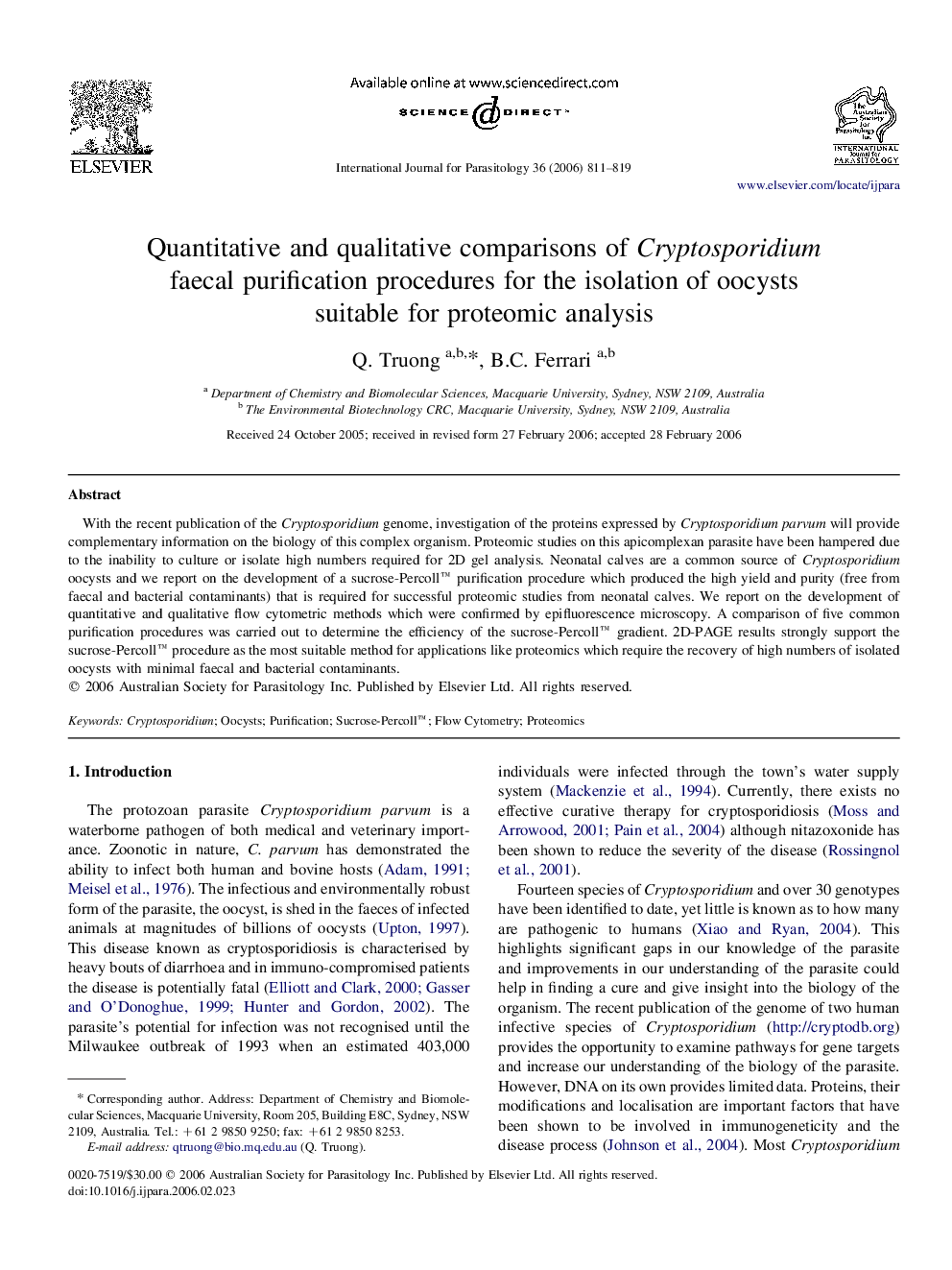| Article ID | Journal | Published Year | Pages | File Type |
|---|---|---|---|---|
| 2437026 | International Journal for Parasitology | 2006 | 9 Pages |
With the recent publication of the Cryptosporidium genome, investigation of the proteins expressed by Cryptosporidium parvum will provide complementary information on the biology of this complex organism. Proteomic studies on this apicomplexan parasite have been hampered due to the inability to culture or isolate high numbers required for 2D gel analysis. Neonatal calves are a common source of Cryptosporidium oocysts and we report on the development of a sucrose-Percoll™ purification procedure which produced the high yield and purity (free from faecal and bacterial contaminants) that is required for successful proteomic studies from neonatal calves. We report on the development of quantitative and qualitative flow cytometric methods which were confirmed by epifluorescence microscopy. A comparison of five common purification procedures was carried out to determine the efficiency of the sucrose-Percoll™ gradient. 2D-PAGE results strongly support the sucrose-Percoll™ procedure as the most suitable method for applications like proteomics which require the recovery of high numbers of isolated oocysts with minimal faecal and bacterial contaminants.
